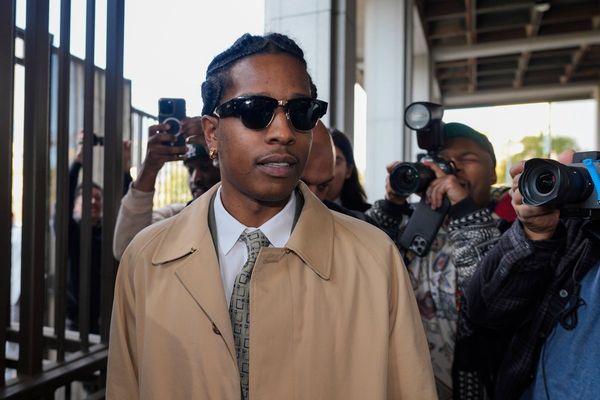
In November 1969, a dynamic young English teacher named Sister Cathy Cesnick vanished soon after leaving her post at Archbishop Keough, a high school in the heart of south-west Baltimore’s Catholic community. The nun’s body was found on a rubbish dump two months later. Nobody was ever charged, but the mystery is more or less solved by The Keepers, a seven-part Netflix documentary that demonstrates how the new wave of true crime series is already evolving.
The rise of bingeable on-demand TV, combined with social media’s power to create word-of-mouth hits, has created a trend for investigations that go into more detail than even non-fiction feature films can. Not that The Keepers’ director, Ryan White, knew that when he arrived in Baltimore three years ago. Serial, the 2014 podcast that sparked the true crime craze and was soon followed by addictive TV series The Jinx and Making a Murderer, was still months from being broadcast.
“We had no plan at the beginning, we didn’t know what we were making,” says White. “Then those series paved the way for this long-form format. We were lucky: The Keepers would have been a very rushed feature film. It wouldn’t have done the story justice.”
A little like this year’s podcast smash S-Town, The Keepers starts with an unsolved murder but is really about something bigger. White’s initial contact was Jean Hargadon Wehner, who had attended Archbishop Keough as a teen and had a startling insight into the Cesnik case. In 1969, before the police discovered Sister Cathy’s corpse, she’d been taken to see it by Father Joseph Maskell, the school chaplain – a gross act of intimidation designed to discourage her from revealing that Maskell had repeatedly raped her in his office. Sister Cathy had promised Wehner and other Keough girls that she would help them.
Wehner didn’t just keep quiet: she repressed every memory of the abuse until 1992, when a chance meeting with an old classmate unlocked her past. The Keepers becomes extremely harrowing when, being interviewed by White at her dining table, Wehner describes what happened in Maskell’s room – she’s fiercely dignified one minute, then crumpling the next as the pain overwhelms her. “I was really compelled by Jean,” says White. “She was the first person who ever spoke up. She thought she was doing the right thing by outing an abuser in her community. Instead, everyone turned against her.”
Other victims came forward after Wehner went public, but the local police and the Catholic community closed ranks. A lawsuit against Maskell failed. The case went cold for two decades – until an unlikely pair of amateur sleuths revived it.
If The Keepers is ultimately a hopeful report on a community’s refusal to accept injustice, the stars are two more Keough alumni, Gemma Hoskins and Abbie Schaub. They had not been targeted by Maskell but they fondly remembered Sister Cathy and, when they retired, resolved to find her killer. A Facebook group they set up became a safe space for previously silent victims of abuse, and it turned up new leads that Hoskins and Schaub chased down.

As filmed by White, they make a fabulous chalk-and-cheese duo. “I’ve watched them refine their odd-couple skill set,” he says. “Gemma is very brave, charming people into telling their stories, knocking on doors. Abbie sits quietly by her computer or researches in the library. I was drawn to two women of that age – ‘retired grandmother Nancy Drews,’ they call themselves – taking this on and saying that it’s not too late to find answers.”
Where other true crime hits have followed a linear chronology, The Keepers hops between 1969, the 1990s and today, striking a fine balance between narrative structure – a wow moment at the end of every episode – and respect for a subject that doesn’t need or deserve sensationalism. “A lot of thought goes into that,” White insists. “Making this, we kept going deeper and deeper, like an abyss. The more we scratched the surface, the more we ended up on another darker, broader layer. We wanted to represent that: everything is not as it appears. The editing takes the audience on that same journey.”
White’s own digging bears fruit in the latter half of the season, when he finds two crucial witnesses. It’s customary for crime documentaries to make a case for the conviction or exoneration of a suspect, but White places more value on a wider purpose: simply telling the story gives Wehner and other survivors the voice, and the closure, they’ve been denied.
“I spent hundreds of hours with Jean in her dining room, understanding her and what she went through,” he says. “Around three years in, we looked at each other and said, I think this might be the time to unbury this story and release it into the world. I think we might be at the end.”
-
The Keepers is on Netflix from 19 May.







